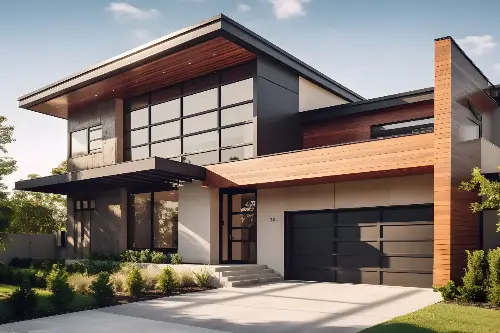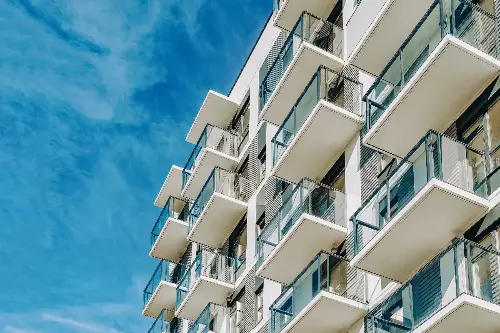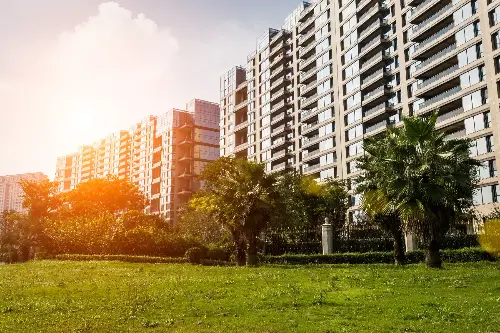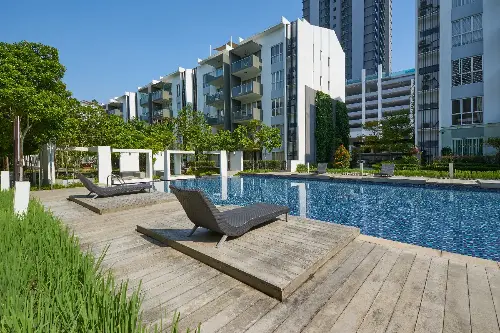Choosing between an apartment and a house for your living space is a decision that requires weighing a multitude of factors, each of which pertains to your lifestyle preferences, financial capabilities, and long-term goals. These considerations span from the tangible, such as cost and maintenance, to the intangible, like community and convenience.

Understanding Space and Privacy Needs
The choice between an apartment and a house greatly depends on your desired living space and privacy. Apartments, particularly in urban areas, tend to provide limited space but offer a certain charm and convenience that many find appealing. If you're someone who values a cosy, low-maintenance home close to city amenities more than expansive space, an apartment might suit you well.
On the other hand, houses tend to offer more room – both indoors and outdoors. This extra space is beneficial for larger families, those who entertain guests frequently, or for anyone who simply enjoys the freedom that comes with additional square footage. Houses, typically situated on their own plots of land, afford a greater degree of privacy compared to apartments, which have shared walls and communal areas.
Financial Considerations
Financially speaking, owning a house typically involves a higher upfront investment along with ongoing maintenance expenses. Property taxes, insurance, and repairs can add to the monthly costs significantly. Conversely, apartments can offer a more predictable financial commitment, often with lower utility costs owing to their smaller sizes.
However, when considering an apartment, it’s crucial to factor in homeowners’ association (HOA) fees, which can sometimes be substantial and rise over time. These fees cover the costs of maintaining common areas, building exteriors, and amenities, if available.

Maintenance and Upkeep
The maintenance responsibilities of a house owner can be both time-consuming and costly, with tasks ranging from lawn care to structural repairs. For those who prefer not to engage in such activities, the lower maintenance lifestyle of apartment living may be more suitable.
Apartment dwellers typically enjoy hands-off maintenance, as most repair and upkeep responsibilities fall on the landlord or building management. This can be a significant attraction for those who prioritize leisure time over home maintenance tasks.
Amenities and Lifestyle
Living in an apartment complex can often afford access to amenities such as a swimming pool, fitness centre, or concierge service – perks that would be costly and impractical for an individual house owner to install. If such facilities play a crucial role in your daily routine or quality of life, the apartment lifestyle may be more conducive to your wellbeing.
A house, nevertheless, has its unique lifestyle perks. The independence associated with house living allows for greater freedom in terms of alterations, expansions, and personalisations that apartments cannot typically accommodate due to space constraints and rental agreements.

Location and Accessibility
Location is paramount in the house vs. apartment debate. Apartments are usually situated in densely populated areas, often offering convenient access to shops, restaurants, public transportation, and workplaces. This proximity can be a significant advantage for individuals who value walkability and short commutes.
In contrast, houses are typically found in quieter, residential neighbourhoods with more space between homes and possibly closer to nature. Such locations might appeal to those seeking a peaceful environment and those with children or pets who would benefit from a yard.
Community and Social Considerations
Apartments can foster a sense of community through shared spaces and the close proximity of neighbours. Interactions in elevators, gyms, or at social events organised by apartment communities can lead to lasting friendships and a strong sense of belonging.
Houses often belong to wider neighbourhoods with opportunities for social engagement at a different pace. Organising block parties, having private gatherings in backyards, and participating in local community events are some ways in which house living can cultivate community ties.

Investment Potential and Flexibility
From an investment perspective, a house usually appreciates in value over time and can provide a substantial return when it comes to selling. However, market fluctuations and the condition of the property can greatly influence this aspect.
Apartment value tends to appreciate as well, albeit sometimes at a different rate. In some urban areas, owning an apartment can be particularly lucrative due to high demand. Additionally, apartments can be easier to rent out, offering more flexibility for owners who might want to travel or relocate temporarily.
Conclusion
Choosing your dream space in the context of apartment and house living involves a complex interplay of personal preferences, financial circumstances, and future aspirations. Each choice encapsulates a distinct way of life, and each brings its specific rewards and considerations. Whether you seek the buzzing connectivity of apartment living or the tranquil spaciousness of a house, ensure that your decision aligns with the lifestyle you envision for yourself. Pause, reflect, and select a space that feels like home – because at the end of the day, it's not just about the bricks and mortar, but the life you'll build within.
